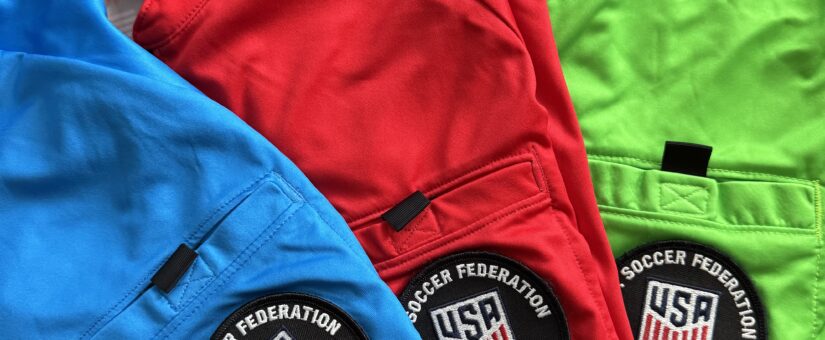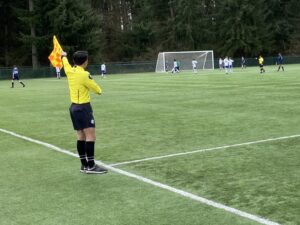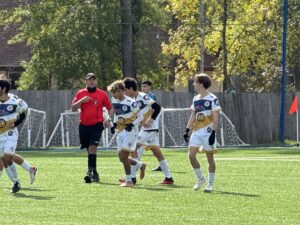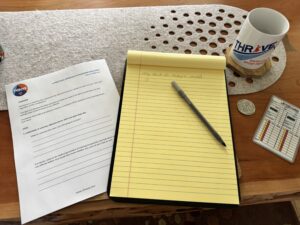
Building a Functional Resilience Plan is Vital to a Referee’s Success
When does a referee need to demonstrate resilience?
After a mistake
When fatigued
When distracted by non-player behaviors
When off-field thoughts creep in
When the game is on edge
When players are constantly challenging calls
To bounce back from anything that was less than ideal
Why are we talking about this?
Referees at all levels make mistakes, have subpar games, come to the field not feeling their physical/mental best, or carry off field issues to them. Whether you are refereeing MLS, USL, College, ECNL, or local club rec games, less than ideal things happen on the field. According to PGMO (Professional Game Match Officials), PL refs make about 245 decisions per match. In total, Refs make about 5 errors per game. PGMO also says AR’s make around 50 decisions per game. For both middles and AR’s, this results in an accuracy rate of roughly 98%. According to a National Referee Coach I spoke to; he said Refs on average get things about 90% right across all levels. So somewhere between 90-98% of the time we get it right. But how do we move on quickly and efficiently when things don’t go exactly as we had planned? This is where building your resiliency plan comes in handy!

Commonly soccer referees are exposed to external sources of stress when dealing with rowdy parents, crowds, loud coaches, the desire to be certified at a higher level, scrappy games, and teams dealing with the pressure to win. Both external and internal pressures can affect how a referee applies their skill to the game, especially when one considers that a single call made by an official could affect the outcome of a game.
How does fitness and fatigue play into the need for resiliency?
Let’s consider the similarities in physiological output soccer refs and players use to meet the demands of the game to help answer that question. When we look not only at the internal and external stresses of soccer refereeing, but also the physiological demands an official faces during a game, a strong suggestion can be made that paring a physical training program with a mental training program like players do, is vital for effective officiating. Castagna et al (2013) found that soccer referees who officiate high level 90-minute games, cover between 5.5-8 miles per game, have heart rates readings at 85-90% of their maxes at various intervals, and have cardiovascular measurements of 70-80% of their max VO2 uptakes over the course of 90 minutes. This is a parallel equivalent to midfielders competing at the same level.
When covering that much distance in a game, it is vital to have tools in ones’ toolbox to help assist making correct calls once physical fatigue sets in. The results of Rodriguez, Lopez-Aguilar, & Alonso-Arbiol (2021) show that soccer referees have a minor physiological drop-in fitness during the second half of games which can result in a slight loss of self-confidence, decreased stress control, motivation and mental ability, and a greater level of somatic anxiety. These drops were shown to decrease mental ability and crew cohesion, which in turn increased stress control and motivation compared to a ref’s baseline behaviors when fitness wasn’t an issue. The conclusions drawn by Rodriguez, et al (2021) suggest that amateur referees would do well to supplement their physical training with mental training to increase stress control/resiliency to help offset the external stress they must deal with arising from decreases in fitness over the course of a match.
So, what is Resilience really?

Resilience is a construct that represents the skills and behaviors needed to return to your “best self” regardless of the circumstance. Your goal as a referee is to develop the skills and behaviors that you need to be able to be at, or return to, your optimal state of performance as an official during challenging moments in the game. Developing these skills and behaviors requires a consistent effort applied whenever you train. In that way, a referee is ready to consistently show off the way they are resilient prior to and during games.
Okay, so how do I improve my resilience as a referee?
First, understand in concrete, objective terms what your goal is. In other words, what are you working to become as an official? Or how is it you really want to consistently work when you are on a game? Once we know where we’re trying to get to each time we are on the field, it will be all that much easier to work consistently towards those behaviors and reach those goals. Really hard to reach a goal you haven’t set.

Next, identify the targets in your skills and abilities that could use some development. We all have areas of our work that could use some help; understanding certain laws, fitness, self-talk, stress reduction, body language, communication, pre-game, time management, you get the idea. Really reflect on which areas need some love. Then make a plan or seek out resources to help you develop those targeted behaviors. More on that below. An idea is useless without a daily plan. So that means you next need to complete all this good thinking by making a commitment to implement this stuff on game days.
That sounds, good in general terms, but what are the actual things I can do to build my resilience?
1). To figure out your ‘best self’ target, consider what you look and act like as an official at your best. Also, think about if a mentor came to a field to watch you work and had never seen you perform before, what would they see if you were officiating at your best?

2). Next, it’s time to consider which characteristics of your best that might need to be enhanced in challenging situations. Additionally, are there characteristics you show on your proverbial C- days that need to be addressed?
3). Now, create a plan to consistently target and demonstrate the 3-5 most important characteristics for your resilience on a daily basis. In other words, what will you do in daily training and match day prep to help become grittier and more resilient in challenging situations?
4). And lastly, develop a plan for integrating these resiliency characteristics into your everyday routine so that they are ready and available in all situations (especially competition days). Basically, what will you do on competition days to be resilient once things start? Do you have a routine?
Through this work we can craft a functional resiliency plan which is applicable to training and game days. Once developed and practiced, your resiliency plan will now be ready to help you deal with those internal and external distractions we all face each time we hit the field.

Next time we will talk about how Self-Talk will enhance your on-field performance as a referee. See you out there!
~ Derrek
- Getting Your Intensity Level Right - March 17, 2025
- Building a Functional Resilience Plan is Vital to a Referee’s Success - February 18, 2025
- sport in a pandemic: Crisis or opportunity?Chapter 4 - December 4, 2020


